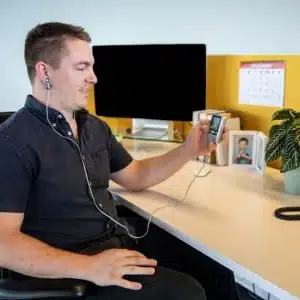We can all start to breathe a sight of relief. Our efforts to follow the shelter-in-place order, to contain the spread of the coronavirus (COVID-19) pandemic is starting to pay off. Many states are starting to ease restrictions and lifting stay-at-home advisories. Concerns for our safety and that of our loved ones, meant many of us didn’t find it too stressful to start working from home, and only venture out for groceries or other essentials.

Shelter in place
Isolating ourselves at home to protect ourselves and our loved ones, at a time when the world outside is unsafe, feels right. For many, the first few weeks of shelter-in-place provided a unique opportunity to reconnect with our families and those physically close to us. However, the mandate has been in force for close to 12 weeks, and for many being homebound without a break from our immediate family, transitioning kids to virtual schooling, loss of income, perhaps becoming sick or having to care for others is increasingly stressful. For those living alone, the shelter-in-place order may have resulted in feelings of isolation, loneliness and depression. The stay-at-home period was uniquely stressful for all of us and returning to normal will be too.
Transitioning to normality
The idea of transitioning back to society after all we’ve experienced in the last few months is causing a great deal of worry and stress. Few of us would describe ourselves as anxious people, but returning to ‘normality’ amidst reports that infection rates remain high, is an understandably frightening and anxiety provoking prospect. If you are in an ‘at risk category’ your concerns may be even more amplified.
If you have been told by your employer that you can return to work, you may be understandably concerned about the risk of becoming infected or infecting loved ones when you return home. Perhaps you are unsure that your employer has taken sufficient precautions to prevent the spread of COVID-19. It may be that public transport is the only means for you to get to work, or you work in a customer facing role; if your fears of contagion, virus or bacteria feel like they have multiplied, you are not alone.
 You are not alone
You are not alone
Feelings of anxiety are common, now more so than ever. A recent poll by the American Psychiatric Association found that 40% of Americans are experiencing anxiety about themselves or a loved one contracting COVID-19. The number of Americans expressing worry and concern about their lives and contacting the Disaster Distress Helpline has increased by 300%. As the executive director of the Texas chapter of the National Alliance on Mental Illness (NAMI) Greg Hansch said, “As a result of COVID-19, many more people are much lonelier than they’ve ever been before”.
If you have concerns about how you or a loved one will manage the transition, we have some researched backed suggestions.
Prescription medications
A report by America’s State of Mind published in April of 2020, states that the rate of prescriptions for benzodiazepines (e.g., Xanax, Ativan, Valium, Klonopin) a class of drugs typically prescribed to treat anxiety has increased by 34% from February to March of this year, coinciding with the start significant media coverage of COVID-19.
If anxiety is something you are struggling with, there are a multitude of ways to get help managing your symptoms. Prescription medications such as anxiolytics, can be an effective short-term solution for anxiety, but do carry significant risks, including dependence and abuse, and potentially dangerous drug-drug interactions, and medication is not a viable solution for all anxiety sufferers.
Alternative treatments
If you’ve tried medications in the past to manage your anxiety and did not get the relief you hoped for, you just want to consider non-pharmacological interventions, or you’re not a suitable candidate for medication, Alpha-Stim® might be a good fit for you.

Alpha-Stim is an FDA cleared medical device that is clinically proven to safely and effectively treat anxiety. Clinical trials have shown that 90% of Alpha-Stim® users experience clinically significant relief from symptoms of anxiety. Results are long lasting and often immediate, and treatments take just 20 minutes in the comfort of your own home. Alpha-Stim sends a tiny current of electricity to your brain through electrodes that clip onto your earlobes; this is a modality known as cranial electrotherapy stimulation (CES.)
There are in excess of 100 clinical trials conducted over several decades supporting the efficacy of Alpha-Stim, and the device has been used in people for whom medication treatments may be contraindicated. If you’re not completely impressed with your results, our 30 day money-back satisfaction guarantee lets you send the device back!
Alpha-Stim uses a patented waveform of electricity that restores balance to your brainwaves, reducing your feelings of anxiety. The benefits are cumulative, the more often you use Alpha-Stim, over time the less you’ll need to. There is no risk of addiction or lasting side effects from continual use of the Alpha-Stim. Some anxiety sufferers have reported that they find it helpful to use the device prior to engaging in activities they are anxious about. Conversely, others choose to use the Alpha-Stim at the end of the day to unwind and de-stress. There is no ‘one way’ to use the device, it can be used to suit your lifestyle and schedule.
Tips to thrive
The expression “unprecedented times” may seem like it has been overused, yet the reality is that none of us have ever experienced such a radical change to our way of living and working, paired with such an extended period of isolation and confinement. The feelings of worry and anxiety you or a loved one may be experiencing are adaptive and consistent with a period of extreme stress – it is not a sign of weakness. We are all still processing the impact of the events of the last few months. Indeed, “unprecedented times” call for “unprecedented solutions”. If you are looking to thrive as you return to the “new normal”, consider Alpha-Stim as a possible option.

